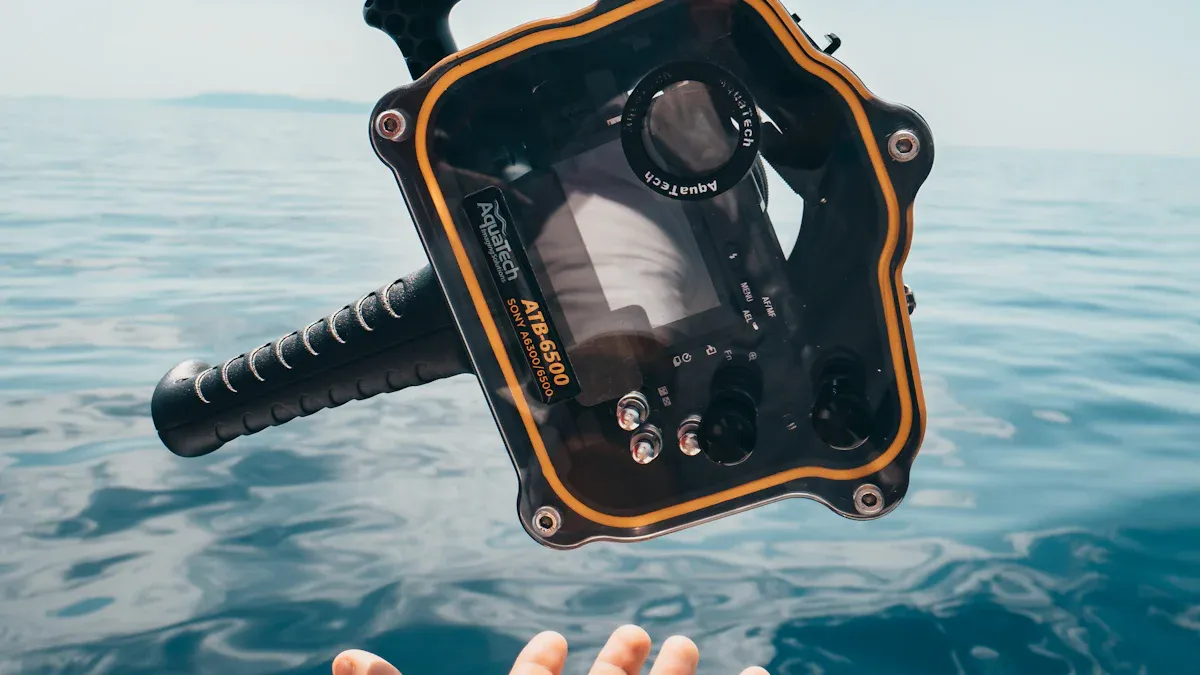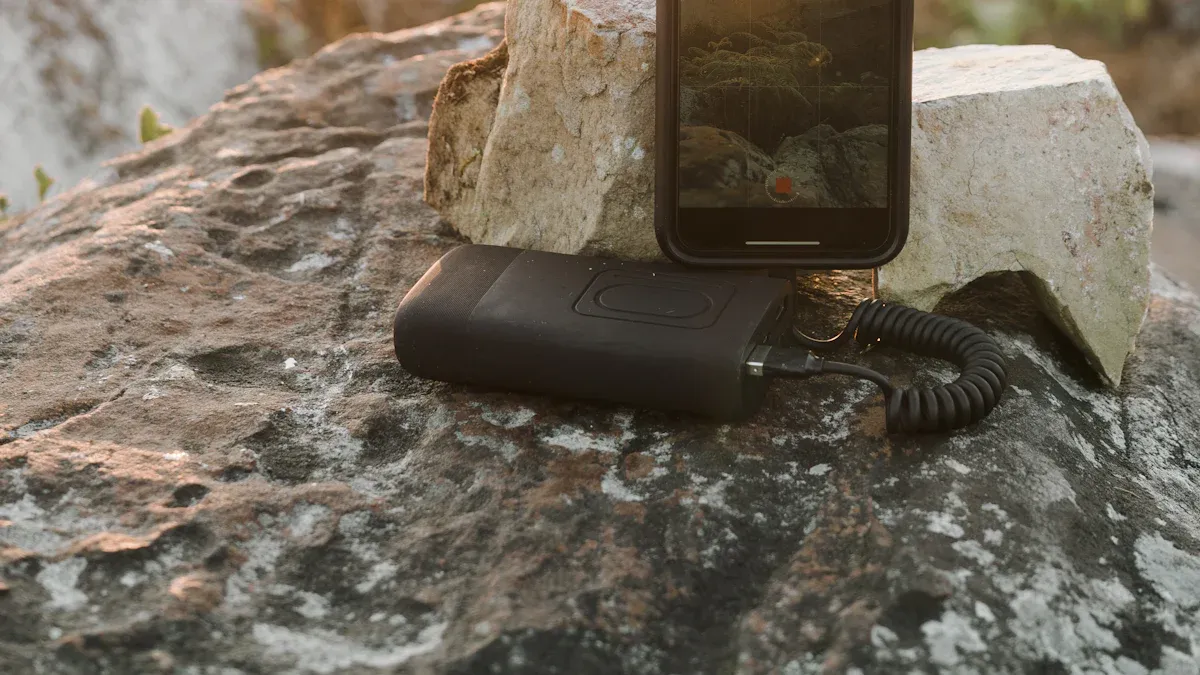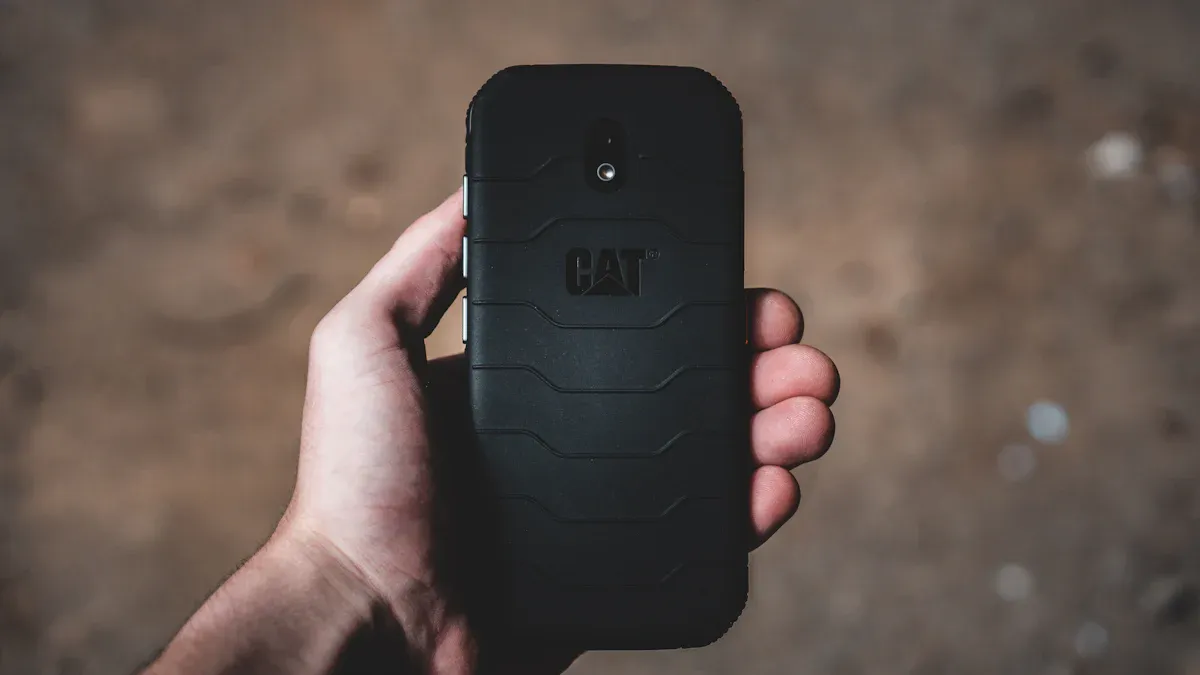
Rugged telephone handsets are built to handle tough environments. Whether you’re working in construction, military operations, or remote areas, these devices keep you connected when regular phones fail. With features like IP67 waterproof grade and shock resistance, they’re designed to survive drops, dust, and water. Some models, like the h250 handset, even function as military radio handsets, offering reliability in critical situations. Choosing the right military handset ensures you stay connected, no matter where your work takes you.
Key Takeaways
- Rugged phones are built to last in tough places. They work well in areas like construction sites or military zones.
- Choose phones with IP67 or better for water and dust safety. Check for MIL-STD labels to know they handle rough use.
- Buying a rugged phone can save money over time. It lowers repair and replacement costs in hard jobs.
Built for Extreme Durability

What Defines a Rugged Telephone Handset?
A rugged telephone handset isn’t just a regular phone with a tough case. It’s built from the inside out to handle extreme conditions. These handsets are designed to survive drops, resist water and dust, and keep working in temperatures that would shut down most devices. You’ll find features like reinforced frames, sealed ports, and shock-absorbing materials.
Tip: Look for handsets specifically labeled as "rugged" rather than relying on generic claims of durability.
Key Durability Standards (IP Ratings, MIL-STD Certifications)
When choosing a rugged telephone handset, pay attention to its durability certifications. Two key standards to know are IP ratings and MIL-STD certifications:
- IP Ratings: These measure how well a device resists water and dust. For example, IP67 means the handset can survive being submerged in water and is completely dustproof.
- MIL-STD Certifications: These are military-grade standards that test devices against shock, vibration, and extreme temperatures. MIL-STD-810 is a common certification for rugged handsets.
A quick glance at these ratings can tell you if the handset is tough enough for your needs.
Importance of Durability in Harsh Environments
Durability isn’t just a nice-to-have feature; it’s essential when you’re working in challenging conditions. Imagine being on a construction site or in a remote area where your phone takes a tumble or gets drenched. A rugged telephone handset ensures you stay connected no matter what. Its durability saves you from costly replacements and downtime.
Note: Investing in a durable handset upfront can save you money and headaches in the long run.
Specialized Features for Tough Conditions
Water, Dust, and Shock Resistance
When you’re working in tough environments, your phone needs to handle more than just a few bumps. A rugged telephone handset is built to survive water splashes, dust storms, and accidental drops. Many models come with IP67 or IP68 ratings, which means they’re dustproof and can handle being submerged in water for a short time. Shock resistance is another key feature. These handsets are designed to absorb impacts, so you don’t have to worry if they slip out of your hand or fall off a table.
Tip: Always check the IP rating and shock resistance details before buying. It ensures your handset can handle the challenges of your work environment.
Long Battery Life for Remote Work
Imagine being in a remote area with no access to power. A dead phone could leave you stranded. Rugged telephone handsets often come with long-lasting batteries that can keep you connected for days. Some models even include power-saving modes or swappable batteries, so you’re never left without a working device. This feature is especially useful for outdoor workers, adventurers, or anyone who spends long hours away from charging stations.
Enhanced Audio and Display Usability
Clear communication is critical in noisy or low-visibility environments. Rugged handsets often feature loudspeakers and noise-canceling microphones, so you can hear and be heard even in chaotic settings. Their screens are designed to stay readable under bright sunlight or in the rain. Some even work with gloves, making them perfect for construction sites or cold climates.
Did you know? Many rugged handsets also include customizable buttons for quick access to essential functions, saving you time when it matters most.
Compatibility for Seamless Integration
Network Support (4G, 5G, Satellite)
A rugged telephone handset should keep you connected no matter where you are. That’s why network support is so important. Many of these handsets work with 4G and 5G networks, giving you fast and reliable communication in urban and suburban areas. But what if you’re in the middle of nowhere? Some models also support satellite connectivity, which is a lifesaver in remote locations. Whether you’re on a mountain or in the middle of the ocean, you’ll still have a way to stay in touch.
Tip: Check the network compatibility of your handset before buying. It ensures you won’t face any surprises when you need it most.
Integration with Existing Systems
Your rugged telephone handset should fit seamlessly into your current setup. Whether you’re using it with a company’s communication system or pairing it with other devices, compatibility matters. Many handsets are designed to integrate with PBX systems, VoIP platforms, or even two-way radios. This makes it easier to streamline communication across your team.
If you’re in an industry like construction or logistics, this feature can save you time and effort. You won’t have to worry about juggling multiple devices or systems.
Software and App Compatibility
Modern rugged handsets aren’t just tough—they’re smart too. Many run on popular operating systems like Android, so you can install apps that make your job easier. From GPS navigation to task management tools, the right apps can boost your productivity.
Some models even come with pre-installed software tailored to specific industries. For example, you might find apps for safety checks or inventory management. This makes the handset more than just a phone—it becomes a tool that works as hard as you do.
Cost and Long-Term Value
Price Ranges of Rugged Telephone Handsets
When it comes to rugged telephone handsets, prices can vary widely. You’ll find budget-friendly models starting at around $100. These are great for basic needs like durability and water resistance. On the higher end, premium handsets can cost over $1,000. These often include advanced features like satellite connectivity, thermal imaging, or military-grade certifications.
Tip: Think about your specific needs before deciding on a price range. Spending more upfront might save you money in the long run.
Balancing Cost with Features
It’s tempting to go for the cheapest option, but that’s not always the best choice. A rugged telephone handset with the right features can make your job easier and safer. For example, if you work in remote areas, a handset with long battery life and satellite support is worth the extra cost. On the other hand, if you’re in a less demanding environment, a mid-range model might do the trick.
Make a list of must-have features and compare models in your price range. This way, you’ll avoid paying for extras you don’t need.
Evaluating Return on Investment
A rugged telephone handset is more than just a purchase—it’s an investment. Think about how much downtime or replacement costs you’ll avoid by choosing a durable device. If your handset lasts for years without breaking, it’s already paid for itself. Plus, features like enhanced communication and productivity tools can boost your efficiency, adding even more value.
Did you know? Many rugged handsets come with warranties, giving you extra peace of mind about your investment.
Ideal for Specific Industries and Use Cases

Industries That Rely on Rugged Handsets
Some industries simply can’t function without rugged devices. If you work in construction, you know how demanding the job site can be. Dust, debris, and accidental drops are part of the daily grind. A rugged telephone handset thrives in these conditions, keeping you connected when you need it most.
The military is another field where these handsets shine. They’re built to handle extreme temperatures, vibrations, and even water submersion. Emergency services, like firefighters and paramedics, also rely on them for their durability and reliability during critical missions.
Fun Fact: Even industries like agriculture and logistics benefit from rugged handsets. They’re perfect for outdoor work and fast-paced environments.
Use Cases in Remote or Hazardous Locations
Picture this: You’re deep in the mountains or working on an offshore oil rig. Regular phones just won’t cut it. Rugged handsets are designed for these exact scenarios. They offer features like satellite connectivity and long battery life, ensuring you stay connected no matter where you are.
Hazardous locations, like chemical plants or mines, also demand specialized devices. Rugged handsets often meet safety standards to prevent sparks or malfunctions in explosive environments.
Matching Features to Your Needs
Not all rugged handsets are created equal. Choosing the right one depends on your job. Do you need water resistance for outdoor work? Or maybe a handset with enhanced audio for noisy environments? Make a list of your must-haves before you shop.
Tip: Always check the specs to ensure the handset matches your specific needs. It’s the best way to get the most value for your money.
Rugged telephone handsets are essential tools for anyone working in tough environments. By focusing on what matters—durability, features, and compatibility—you can pick the right one. Take a moment to list your needs and compare options. The perfect handset is out there, ready to make your job easier.
FAQ
What makes rugged telephone handsets different from regular phones?
Rugged handsets are built tougher. They resist water, dust, and drops, making them perfect for harsh environments where regular phones would fail.
Tip: Look for IP and MIL-STD certifications to ensure durability.
Can rugged handsets work in remote areas without cell service?
Yes! Many rugged handsets support satellite connectivity. This feature keeps you connected even in the most remote locations, like mountains or offshore sites.
Are rugged handsets worth the higher price?
Absolutely! They last longer, reduce downtime, and handle tough conditions. Over time, their durability and features save you money on replacements and repairs.
Did you know? Some models come with warranties, adding extra value to your investment.


